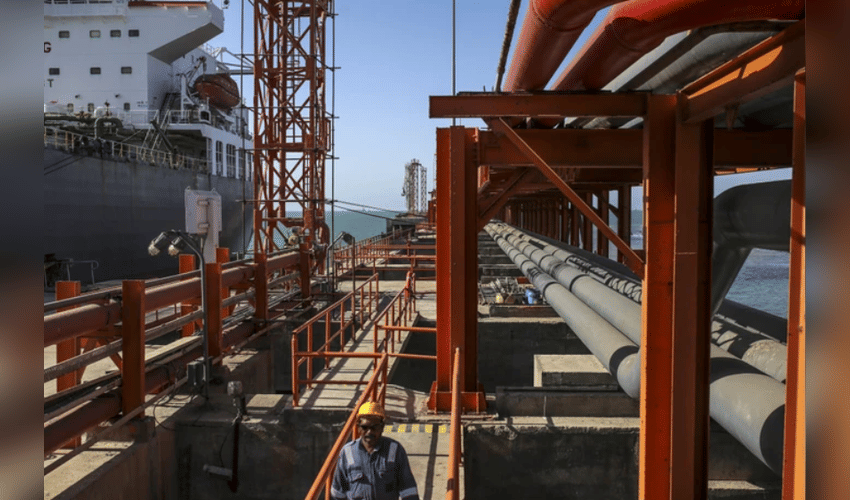Economy
US sanctions may result in 48 million barrels of Russian oil being stranded at sea.

US sanctions taking effect on Friday could leave nearly 48 million barrels of Russian crude stranded at sea, forcing dozens of tankers to scramble for alternative buyers and reshaping the global oil trade. The move follows Washington’s blacklisting last month of major Russian oil producers Rosneft PJSC and Lukoil PJSC, marking one of the most aggressive measures by the Trump administration to pressure Moscow over the Ukraine conflict. The US Treasury has already called the sanctions a success, citing reduced demand and deeper discounts on key Russian oil grades.
With the restrictions imminent, Asian buyers are racing to secure replacement supplies. Indian refiners are booking tankers from the Middle East at a pace that has driven freight rates near a five-year high. Traders are monitoring existing Lukoil and Rosneft cargoes at sea, uncertain who will ultimately take delivery. “Russian exports are flowing, but they are not reaching their destinations yet,” said Warren Patterson, ING Groep NV’s head of commodities strategy. “If this continues, supply bottlenecks could emerge, raising market concerns.”
Analytics firm Kpler estimates that nearly 48 million barrels of Rosneft and Lukoil crude—mainly Urals and ESPO grades—are either in transit or being loaded. This includes around 50 tankers bound for China and India, while others have no clear destinations, scattered from the Baltic to the South China Sea as intermediaries step back from the trade. Russia remains determined to keep oil moving, maintaining seaborne shipments at roughly 3.4 million barrels per day, according to vessel-tracking data. Benchmark prices have so far shown little impact from the sanctions.
However, not all barrels may reach buyers. While China and India take most of Russia’s exports since the 2022 invasion of Ukraine, both remain cautious of secondary US sanctions. The degree of enforcement will determine how much oil actually reaches refineries. Adam Lanning, senior tanker market analyst at SSY, noted that disruptions could last only a few months, with markets likely finding workarounds to continue imports without violating sanctions.
Sanctions have already prompted buyers to shift toward mainstream oil grades. Recent tanker movements illustrate this shift: two Urals-laden vessels that previously turned around have resumed voyages toward India, though they may not reach buyers before the November 21 wind-down period ends. Other tankers indicate the emerging disruptions. The Cindy, carrying 770,000 barrels of ESPO from Kozmino, is heading to open waters near Singapore and Malaysia, areas known for ship-to-ship transfers to obscure origin. The Fortis, with 720,000 barrels of Rosneft Urals, diverted from China to South Korea after a rare transfer near India.



